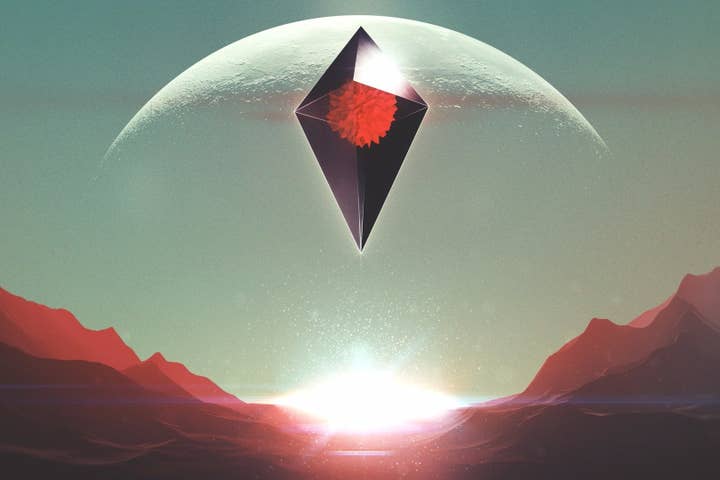Don't believe the hype
Weekly roundup: No Man's Sky still embodies a simple lesson many in the industry refuse to learn
No Man's Sky launched this week, and the entire industry seemingly ground to a halt to see what would happen.
No Man's Sky was a hugely anticipated game with an air of mystery, launching in a soft spot of the release calendar. The launch was a chance for people who hadn't been following super closely to find out what exactly the game has players do, and whether or not doing those things was fun. It had a compelling backstory as everyone wanted to see if indie developer Hello Games could make the jump from churning out installments of the perfectly serviceable Excitebike-like Joe Danger series to creating something on the scale of a AAA-like blockbuster. It was a technically ambitious game packed with marketing friendly phrases and stats, like its procedurally generated universe of 18 quintillion planets.
"When the game launched, there was the sort of friction we always see when games are hyped to the center of the universe and back."
The anticipation was too much even for Hello Games CEO Sean Murray, who said "Obviously the hype is terrifying. I mean, I have had this hanging over me for three years since we announced... It's Catch 22. If we hadn't announced when we did, we probably would have quit the project without the community supporting us... but god... should I have passed up Colbert? Or E3? I dunno."
Predictably, when the game launched, there was the sort of friction we always see when games are hyped to the center of the universe and back. Many of those who were excited seemed upset that the game in their hands was not the game marketing had put in their heads. Some of those who weren't excited for the game engaged in the usual backlash, upset because seemingly everyone else in gaming disagreed with that assessment. The early impressions from reviewers were mixed, with some taken aback by what the game was, and others enjoying it for what it wasn't. One storyline dragged on through the week (albeit not on this site) was whether or not the game was actually multiplayer, and why the developers didn't communicate that clearly enough beforehand.
We've seen this before, of course. Promising a technological leap or an incredibly ambitious AAA-scale game unlike anything that's come before is a fine way to get attention, but it's functionally impossible to deliver on. When you're promising people the biggest and best Uncharted yet, that's a pretty concrete goal people will generally understand, and it's one you can at least get reasonably close to achieving. But promising something unlike anything we've seen before rarely works out, even when you objectively deliver on just that. By not setting expectations early on, Sony and Hello Games let people's ideas of No Man's Sky get out of hand, untethered from the actual product in development.
The whole episode is likely familiar to anyone who's been in the games industry for any amount of time. It looks a little bit like what happened with the Dreamcast game Seaman. It's not entirely unlike what happened with Lionhead's debut PC game, Black and White. And for some, it's uncomfortably close to what happened with Will Wright's EA swan song Spore.
It's unlikely this sort of hype hurts an individual game's sales (there's a reason this cycle repeats itself, after all), but the end result is always a bit of a shame. It's unfair to sell a player one game and provide them another. It's unfair to ask a developer to defend the difference to their disgruntled customers. And it's unfair to everyone who worked to produce these games that will forever be known less for the advances they made than the hype they failed to justify.
Of course, not even No Man's Sky could completely eclipse Pokemon Go in the headlines. Niantic this week blocked a host of third-party apps and sites that have facilitated cheating in the game, restoring public faith in successful Pokemon trainers everywhere. At the same time, the company is trying to carefully tread the fine line between getting the most out of the game's monetization potential without undermining the fun.
Just as Niantic is adapting to the game's breakthrough success, so too are legislators. Last week's legislation proposed by New York State Senators has put the industry in a Catch-'em-all-22. Fighting the bills means being seen as on the same side as sex offenders, but IGDA head Kate Edwards warns that letting them go through unchallenged could hobble the emerging location-based gaming/augmented reality field.
Elsewhere on GamesIndustry.biz this week:
Digixart's Yoan Fanise says premium mobile games are dead, and he's pivoting to consoles and Steam
Microsoft acquired interactive streaming service Beam.
Hackers briefly found a way around Denuvo's DRM as the industry and pirates continue to trade blows
HelloVR looks to break new ground in social VR with MetaWorld
In other news:
HTC is rolling out its own Vive storefront, called Viveport
Bandai Namco reported first quarter growth across the board
Humble Bundle is going to partner with Twitch streamers and cut them in on the proceeds
Tequila Works' RiME will be published by Grey Box with help from Six Foot
Nexon's Q2 revenues sank 11% and the company missed its earnings projections
DeNA grew revenues and posted a profit for the quarter
Nvidia posts record second quarter revenues, strong earnings growth

